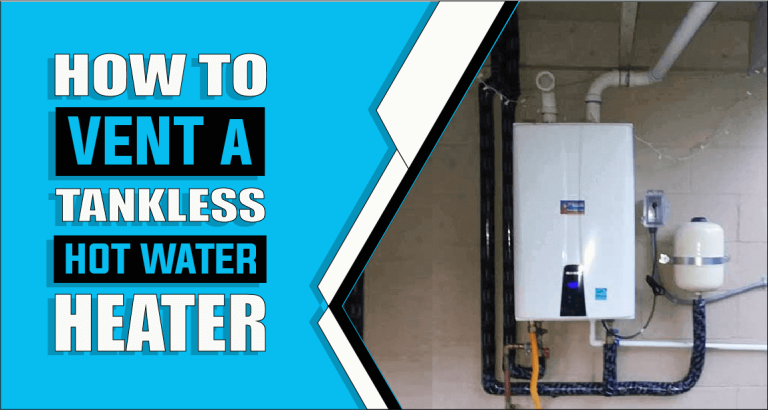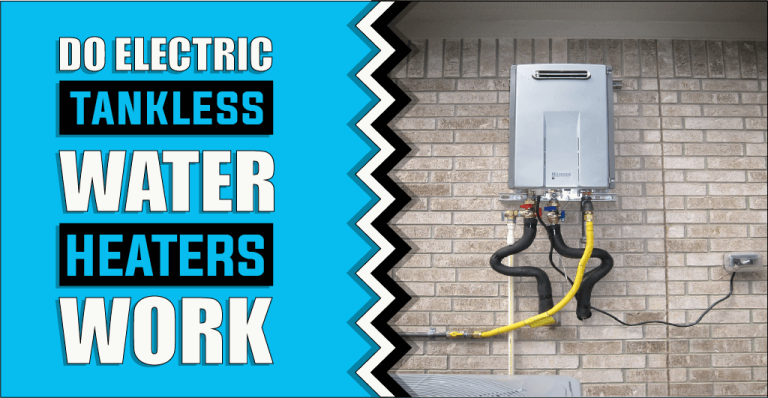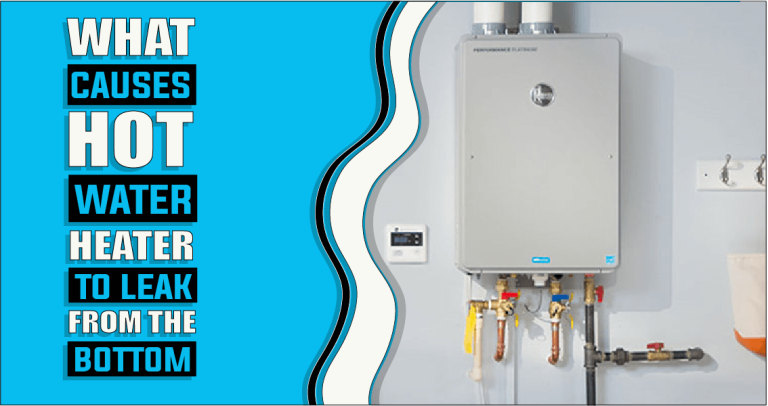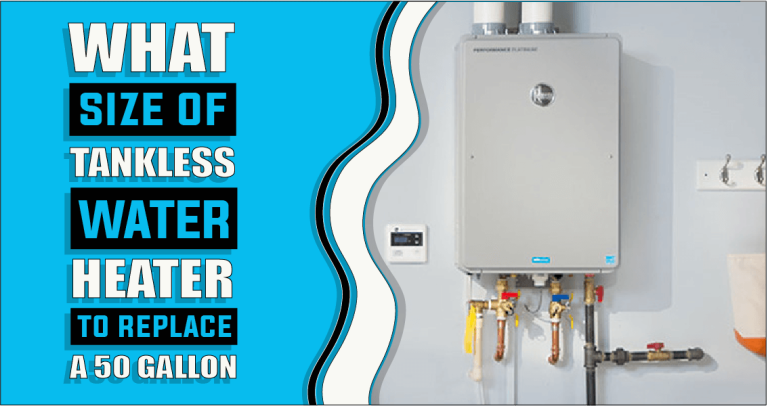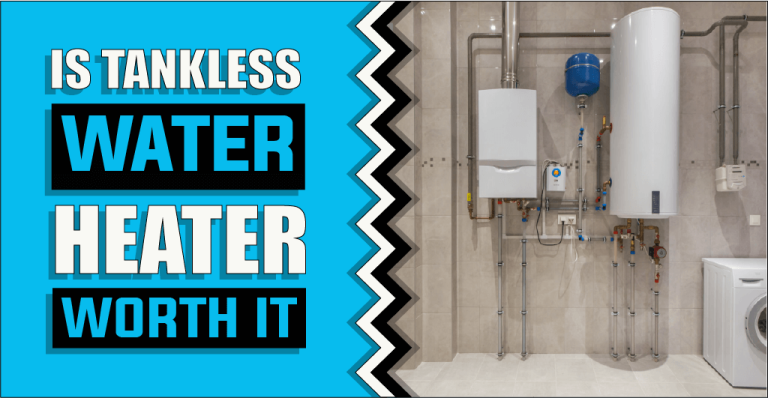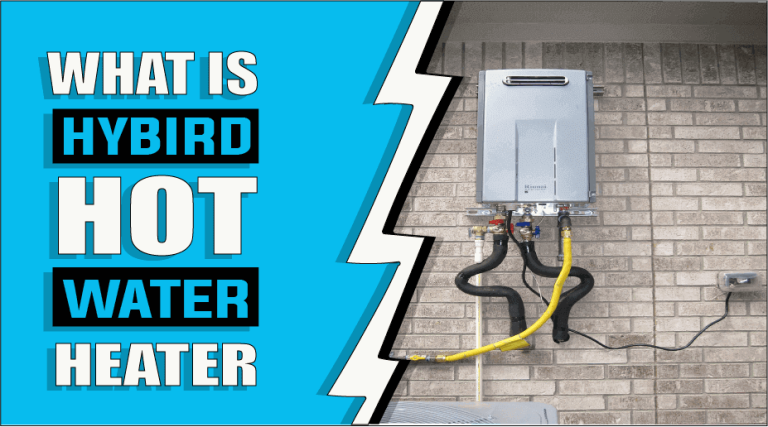What Size Tankless Water Heater To Replace A 75 Gallon – The Truth Reveals
Do you rely on hot showers and have a knack for entertaining guests? Are you researching the best tankless water heater to replace your old 75-gallon unit? You’ve come to the right place! Finding out what size and type of water heater are right for your home can seem daunting, but with a little bit of knowledge and research, you will be able to pick the perfect fit in no time. Our guide is here to help with what size tankless water heater to replace a 75-gallon! Whether you are entirely new to tankless heaters or are an experienced homeowner who wants the benefit of knowing that a 75-gallon tank can be replaced with something smaller, we’ll explain the options available so you don’t end up wasting money. Read on for our top tips and recommendations on choosing a winning replacement tankless water heater and enjoy years of stress-free hot showers.
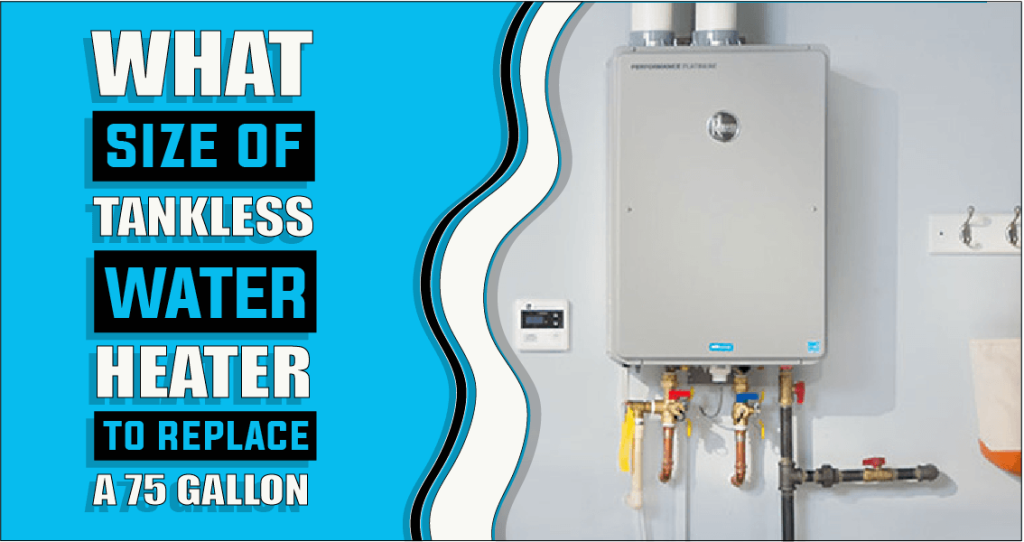
Let’s Look At what size tankless water heater to replace a 75-gallon.
When it comes to replacing an existing 75-gallon tankless water heater, many people are left wondering what size tankless water heater they should choose. For most homeowners, a tankless water heater is the best fit. The tankless water heater is capable of providing enough hot water to handle several household tasks simultaneously, such as running two showers and a dishwasher.
Additionally, the tankless water heater also helps to save energy in comparison to traditional tanked models, given its ability to only heat the amount of hot water needed at any given time. Furthermore, these units are compact enough for installation in closets and small spaces. It should be noted that if you have a large family or require more hot water than usual you may need a larger-sized model.
Overall, proper sizing is key when installing your tankless heater; make sure you pick the right model based on your home’s specific needs and requirements.
Benefits of Replacing a 75 Gallon Water Heater with a Tankless Water Heater
A 75-gallon water heater uses up valuable space in your home and costs a lot to run. Upgrade to the efficient, sleek tankless model instead! You’ll reap big benefits like saving energy, money on utility bills, taking up less room, and feeling great about contributing to an eco-friendly lifestyle.
1: Lower Electric Bill Cost
Replacing a 75 Gallon Water Heater with a Tankless Water Heater could potentially result in a drastic reduction in electric bills, as tankless water heaters only use electricity when hot water is demanded and not continuously like traditional tank-style water heaters. This feature can lead to up to 40% cost savings when compared to other models.
2: Provide a Continuous Supply of Hot Water
With a tankless water heater, you never have to worry about running out of hot water while taking multiple showers or doing the laundry at the same time – they are designed to provide an endless supply of hot water on demand. These units are also capable of producing 3-5 gallons of hot water per minute, which is significantly more than what any 75-gallon model could produce!
3: Space Saving Design
One of the most attractive features of tankless units is that they require very little space in comparison to traditional storage tanks – they can be installed almost anywhere such as under sinks, closets, basements, or attics depending on your needs and preference. By eliminating bulky storage tanks, these models can free up valuable space and make your home look cleaner and more organized overall.
4: Equipped With Digital Temperature Settings
Many modern tankless models come equipped with digital temperature settings so you can control the exact temperature at which your unit operates without ever having to guess or manually adjust it yourself. This ensures that you get the exact temperature you need every single time!
5: Long Lasting Life
Tankless water heaters are built with many parts that are made from highly durable materials and components that are designed for long-lasting life and maximum efficiency. Most manufacturers offer warranties ranging between 10-20 years depending on the type of product purchased, giving owners peace of mind that their unit will last for many years down the road.
Types of Tankless Water Heaters
Hot water on demand that’s what tankless water heaters can provide! There are a variety of types available to suit your specific needs and lifestyle. Get ready for the freedom, convenience, efficiency, and endless hot showers you’ve been dreaming about!
- Gas-Fired Tankless Water Heaters
These types of tankless water heaters utilize natural gas to heat the water that passes through them. A gas burner is used to heat the water as it is being drawn from the pipes, providing hot water almost instantaneously. These systems are highly efficient, often boasting energy efficiencies of up to 85% or more, and save on your monthly utility bills when compared to traditional storage tank systems. There are even models available with built-in condensing technology that further increases their efficiency.
- Electric Tankless Water Heaters
Electric tankless water heaters use electricity as their primary source of power and have heating elements that rapidly heat incoming cold water. They offer plenty of hot water, while also taking up less space than traditional tanks, making them an ideal choice for tight spaces or areas with limited access to a piped fuel supply like natural gas or propane. The majority of electric tankless models come with temperature control settings so you can customize the temperature for different applications like showering or washing dishes, enabling you to save energy by not having to heat all your hot water at once.
How to Choose the Right Size Tankless Water Heater for Your Home
Don’t get in hot water when it comes to choosing a tankless water heater for your home, make sure you know the facts before selecting one that is perfectly sized for your needs!
1: The Size of Your Home
The size of your home and the number of people living in it are two factors that will help you determine the size of the tankless water heater you need. The larger your house and the more occupants, the bigger your unit should be to ensure there is plenty of hot water for all!
2: Assessing Your Home’s Hot Water Needs
After determining the size of your home and what type of fixtures it contains, you must next assess how much hot water your house needs. This is important to know so that you can select a tankless water heater that is capable of coming close to meeting all your hot water needs yet still being efficient enough not to waste energy or money on fuel costs.
To do this accurately you must assess how many family members live in your house and determine how many gallons per minute (GPM) each fixture requires at any given time. Knowing this information will give you an idea as to what size tankless water heater will best fit your home’s hot water needs without overloading it with too much work or being too inefficient.
3: Flow Rate of Water in Your House
The next step is to calculate the peak flow rate needed from a tankless water heater. This is important because tankless water heaters are powerful appliances that must supply enough hot water to meet peak demand. The size of a tankless water heater is measured by its maximum gallons-per-minute (GPM) flow rate.
For example, if you have 2 bathrooms with 3 fixtures each plus a dishwasher and a washing machine all running at once and you want hot water fast without drops in temperature or pressure, then you need to buy a unit capable of producing 10 GPM or more. Smaller homes might get away with 8 GPM while larger homes may require 12 GPM or more.
4: Determine Temperature Rise
The last factor to consider when choosing the right size tankless water heater is the temperature rise. This refers to the difference between the incoming water temperature and what you need it to be at its peak demand.
For example, if your incoming water temperatures are 40 degrees Fahrenheit, then a unit with a 30-degree temperature rise would be enough to get your water up to 70 degrees Fahrenheit.
Different tankless water heaters have different temperature rise capabilities, so it is important to know what you need before making your purchase.
Finally, always buy from reputable brands that have strong warranties and customer service policies. This ensures that if something goes wrong with your new purchase there will be someone available to help you out promptly and properly address any issues quickly! All these considerations should help make your decision when choosing the right size tankless water heater for your home much easier.
Pros and Cons of Installing a Tankless Water Heater
Whether you’re planning for an upgrade or on the fence about making a switch, weighing in the pros and cons of tankless water heaters can help make choosing easy. Learn more here so you’ll know if this energy-efficient solution is right for your home!
Pros of Installing a Tankless System
- Since tankless systems don’t require large storage tanks, they are much more space-efficient. This makes them perfect for small homes or apartments where space is limited.
- Additionally, tankless water heaters only heat water when you need it which can lead to significant energy savings over time.
- They have significantly longer lifespans than traditional tank heaters and generally require less maintenance as well.
Cons of Installing a Tankless System
- Tankless water heaters are initially more expensive than traditional tank systems. However, they can pay for themselves in energy savings over time if used properly.
- Due to their lack of storage capacity, they are not able to provide an unlimited amount of hot water to multiple outlets that are used simultaneously.
- They also require specialized installation and may not be compatible with existing plumbing systems.
Frequently Asked Questions
Yes, you can replace a 75-gallon water heater with a tankless one. However, it is important to calculate the peak flow rate and temperature rise needed from a tankless water heater so that your new appliance can meet your home’s hot water needs without overloading it or being too inefficient.
When choosing the right size tankless water heater, you need to consider your home’s peak flow rate and temperature rise needs. The higher the GPM flow rate that is needed, the larger the unit must be to provide an adequate amount of hot water without experiencing drops in pressure or temperature.
Size matters when it comes to tankless water heaters. You won’t have enough hot water to fulfill demand if you install a unit that is too small. On the other side, an enormous unit will be more expensive to buy and run than necessary, negating one of tankless water heaters’ major advantages: energy efficiency!
The most common issues with tankless water heaters are scale and sediment buildup inside the unit, corroded heating elements or connections, and improper ventilation of combustible gases. If any of these problems occur, it is best to contact a professional technician for assistance.
Conclusion
Replacing your 75-gallon water heater with a tankless system can be a great way to save on energy costs and space in your home. When choosing the correct size of tankless water heater for your needs, it is important to consider your peak flow rate and temperature rise requirements as well as the size of the unit. Additionally, always make sure to perform proper research on brands and check customer reviews and warranties before making a purchase. With all these factors taken into account, you’ll be able to select the perfect tankless water heater for your home! Hope this guide helps determine what size tankless water heater to replace a 75-gallon and wish you luck on your journey to choosing the right tankless water heater!
Ella John is passionate about helping her readers make the best choice when purchasing a heater. She understands that selecting a heater can be difficult and strives to provide information to help make the decision easier. Ella’s website, Heatersinfo.com, provides valuable insight into heating trends and types of heaters and tips on how to care for them. She also advises selecting the right heater based on individual needs and preferences. Her expertise in electronics makes her an excellent source of knowledge, and she is confident that anyone who visits her website will find the perfect heater information for their needs. Ella’s dedication to helping others make educated decisions about buying the right heater is unparalleled, and she hopes to continue offering her expertise for many years. With Ella’s help, finding the perfect heater can be a breeze!

